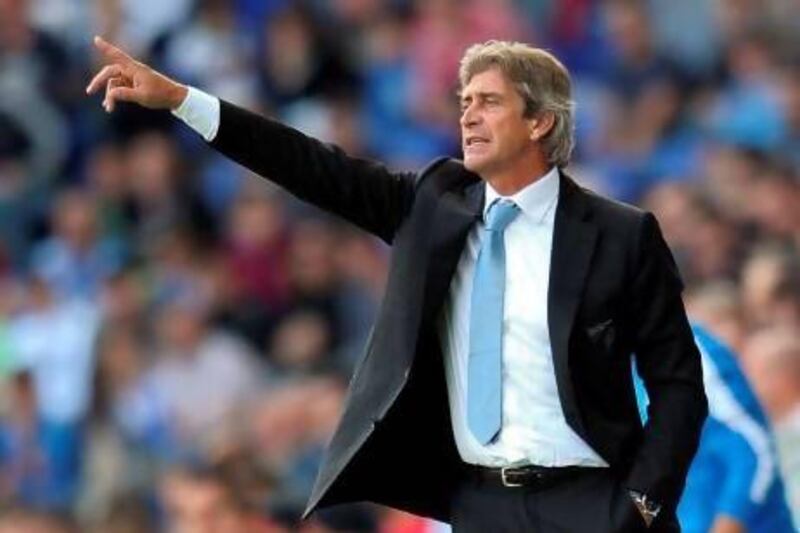Twenty-five years ago, when football’s frontiers between nations, continents and languages seemed a lot more pronounced, a tall, distinguished-looking Chilean who had retired as a player two years before set off for Britain.
There, he had figured, he might learn new things about the theory and habits of management, a career he was embarking on. So he enrolled in a coaching course run by the English Football Association.
He drew benefits from the experience and met interesting people, among them the respected manager of a major English club who at the time was coming under fierce pressure in his job. Back in 1988, Sir Alex Ferguson was felt to be running out of alibis at Manchester United.
The visitor from Chile enjoyed making Ferguson’s acquaintance at Lilleshall and, a long while afterwards, when they were together at a Uefa coaches’ conference, reminded the Scot about the course.
“He remembered it,” Manuel Pellegrini told this reporter many years later, and added with a smile: “But I’m not sure he remembered me.”
Recognition for Pellegrini as a star of the elite managerial scene has been a steady, incremental process, inevitably given his background.
South American coaches do get big jobs in the more lucrative arena of European football but they are generally offered them on the basis of a record there as players.
In the 1970s and 1980s, Pellegrini was a good central defender for Chile’s national side, but spent his playing days entirely in his native league, where he accumulated more than 400 games with the Universidad Chile club.
The first portion of his coaching career was at home, too, although after a spell in Ecuador, he confirmed his brand of management was exportable and enjoyed success in charge of Argentina’s River Plate.
He left there 10 years ago. He was nearly 50, and only then did he cross the Atlantic to start making the reputation, in Spanish and European Champions League football, that would bring him to the attention of Manchester City, who have confirmed Pellegrini will succeed Roberto Mancini, and be tasked with, among other things, snatching back the Premier League title Ferguson won with United and bringing it to the blue half of Manchester.
His credentials are many. If City are looking for a man to handle the tensions and pressures of a major institution, Pellegrini has experience in that. River Plate is a demanding environment.
So is Real Madrid, where he spent a season in 2009/10. His Madrid, with Cristiano Ronaldo, Kaka and Karim Benzema freshly acquired, finished the league campaign with 96 points from 38 matches.
That towering total was not enough to finish ahead of Barcelona, and, coupled with poor runs in the domestic cup and in the Champions League, that meant Pellegrini left after one campaign.
He did so with dignity, which is something of a trademark. An articulate, well-read and measured man with a degree in civil engineering, Pellegrini gives off an authority which it would be natural for City’s executives to seek after the temperamental ups and downs of the Mancini era, or, more pertinently, the era of Carlos Tevez, Mario Balotelli, and Emmanuel Adebayor, to name a few who caused difficulties.
“The way Pellegrini deals with players is excellent,” says the former France winger Robert Pires, who was among the senior men.
Pellegrini had in his squad in the later stages of his successful spell at Villarreal. “We would feel free to talk to him about anything. Pellegrini is not just a coach, he’s also a manager.”
And one whose record in Europe, the Madrid season apart, speaks positively to City’s owners. Much as the club would like to compare themselves with a Real Madrid or United for ambition and resources, they have experienced stark reminders of their novice status in the game’s principal club competition, eliminated at the group stage of the Champions League these past two seasons.
What shines brightest on Pellegrini’s CV is how he lifted Villarreal, in their first attempt, to the semi-finals of the European Cup.
With Malaga, this season, he took another set of Champions League debutants to within minutes of the same stage, denied only by a late Borussia Dortmund goal in the quarter-final.
Mostly, his teams have played attractive football. Pellegrini prizes creative imagination, as playmakers like Juan Roman Riquelme, who flourished at Villarreal, and Isco, the jewel of the current Malaga, would testify.
He talks often of the obligation to entertain as part of his job description. City will be hoping for entertainment and results; of late, Pellegrini has been able to deliver.
Follow us
[ @SprtNationalUAE ]






